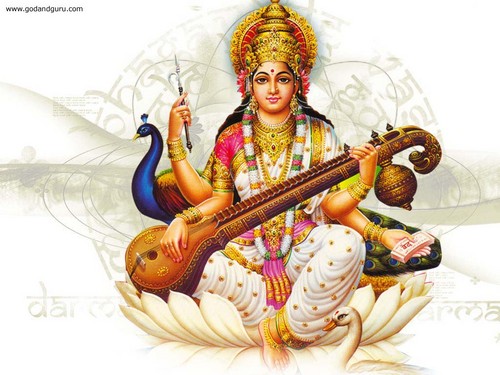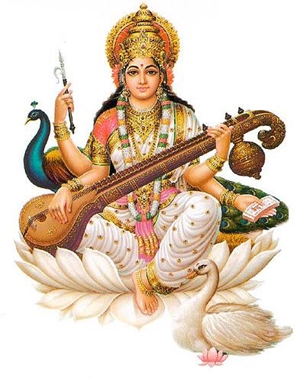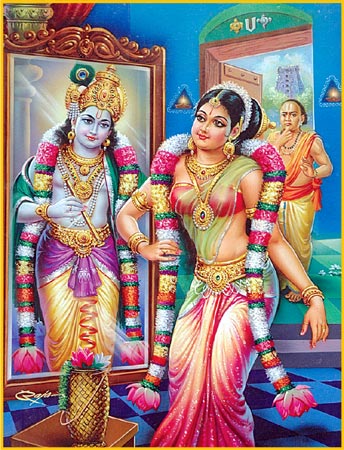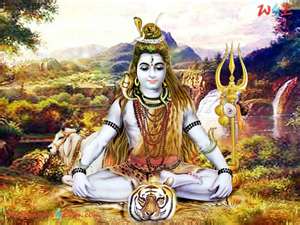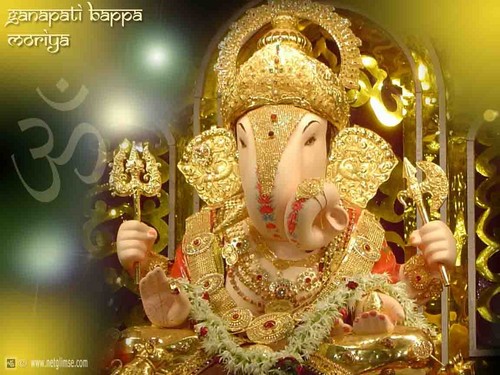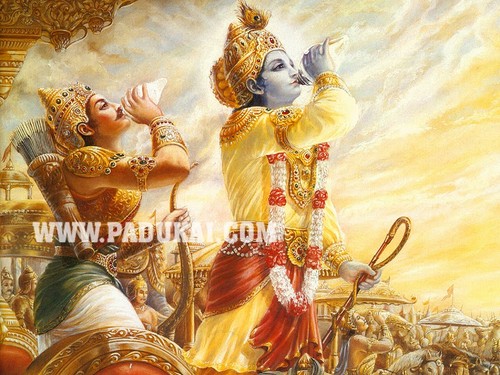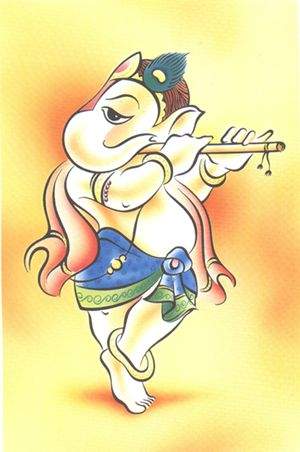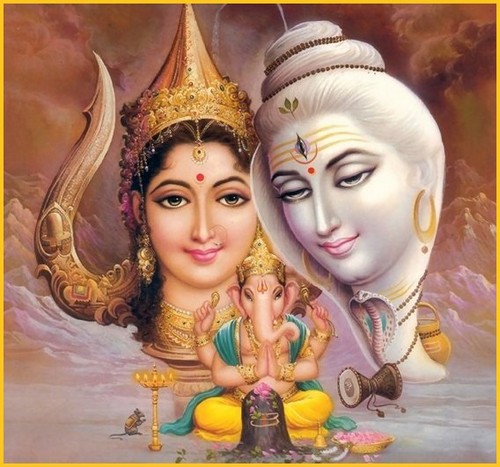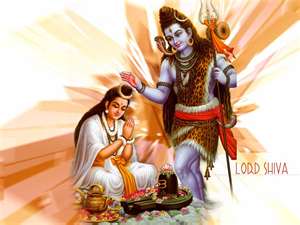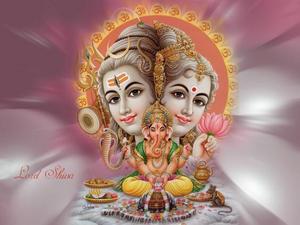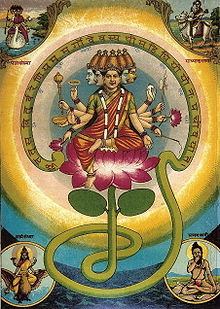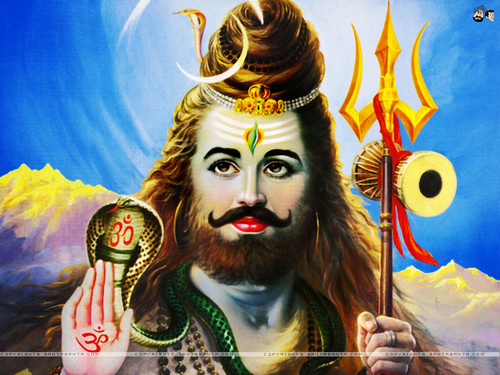One day, when Parvati was only eight years old, her father, Himavan, took her to see Lord Shiva. From birth, Parvati had always been very spiritual. She always wanted to know about God, so she was thrilled to see Lord Shiva. But Lord Shiva was in a meditative consciousness and he did not pay any attention to the little girl.
After that first encounter, Parvati used to come every দিন to see Lord Shiva. She would offer him fresh flowers, hoping that one দিন he would open his eyes and speak to her. In the back of her mind, she had formed the idea that this was the man she wanted to marry.
The days became years and Parvati grew into a beautiful young woman. Still Shiva remained absorbed in his eternal trance. How could anybody disturb Shiva’s trance? Once he enters into trance, he enjoys the highest and deepest bliss. So why should he come back?
One day, Parvati confided to her father, “I really want to marry Lord Shiva. He is meditating and meditating. How I wish that I could also meditate like him!”
Himavan was very sad that Shiva was not paying any attention to his beautiful daughter, who was so spiritual in every way. He decided to play a trick on Shiva: he invoked the god of প্রণয় to disturb Shiva’s meditation. The name of this particular god was Madana. Madana had a bow and some arrows that were made of flowers. He used to shoot these arrows at his victims and then they would be filled with feelings of emotional love.
At Himavan’s request, Madana aimed his arrows at Lord Shiva and the arrows fell as ফুলেরডালি at Shiva’s feet. Suddenly, Shiva opened his third eye and caught sight of the god of প্রণয় standing with his bow in his hands. Shiva immediately burned this unfortunate god to ashes because he had disturbed Shiva’s meditation.
Meanwhile, Parvati was standing nearby with a most beautiful garland in her hands, but Lord Shiva did not pay any attention to her. It was as if she did not even exist. He simply closed his eyes again and went into trance.
Parvati’s parents had witnessed the whole scene and they were furious with Lord Shiva. They felt that he had insulted their dearest daughter. “You cannot marry him, Parvati,” they said. “This Shiva has been insulting আপনি for so many years now. আপনি must not waste your time on him any longer.”
But Parvati would not budge. “I am going to stay here,” she declared. “From now on, I shall eat only leaves, wet leaves.” With heavy hearts, Parvati’s parents returned প্রথমপাতা without their daughter.
For several years, Parvati stayed near Shiva, eating only wet leaves. Then she started eating only dry leaves. After a few আরো years, she gave up eating leaves altogether. When she gave up eating leaves, her name became Aparna, which means ‘one who does not eat even a leaf.’ Parvati became the goddess Aparna at that time because of her extreme tapasya, অথবা spiritual discipline.
As time passed, Parvati went one step further. She stopped drinking water. She was living on nothing but air. Himavan saw that his daughter was becoming very weak. He knew that it was only a matter of time before she would die. So Himavan went to Lord Shiva and said, “Can আপনি not see what আপনি are doing to my daughter? All her life, she has wanted only one thing, and that is to marry you. But আপনি have never even looked at her. If আপনি are determined not to marry her, at least look at her. Otherwise, she will surely die.”
Shiva condescended to look at Parvati, but to himself he said, “Let me test her one last time before I marry her.” Poor Parvati had endured so many tests and still Shiva wanted to test her প্রণয় and devotion. He took the form of an ordinary man and approached her. “You are such a beautiful girl,” he said. “Why are আপনি wasting your time here? I have heard that আপনি want to marry Shiva, but what kind of man is he? He spends all his time in the cremation ground in the company of his ghost-friends. The garland around his neck is made of skulls. How can আপনি marry someone as frightening as Shiva? Forget about him! Marry a normal man, like me.”
Parvati’s eyes burned. “What আপনি are saying is untrue. Go away from here and leave me alone! I know who Shiva is. Do not throw your doubts and suspicions into me. I will never marry you, never! I will marry only my Lord Shiva. If আপনি do not leave me alone this instant, I shall curse you!”
At that moment, Shiva assumed his true form once more. Parvati was so moved and overwhelmed to see him standing before her. Shiva ব্যক্ত to her, “Any boon that আপনি want, I shall give you.”
“You do not know দ্বারা this time what boon I want?” asked Parvati. “I want only to marry you.”
“Granted,” ব্যক্ত Shiva.
After Shiva and Parvati were married, Parvati came to know that she had been Shiva’s wife in her পূর্ববর্তি incarnation. Her name then was Sati and she immolated herself because her father, Daksha, insulted Shiva. But that is another story!
After that first encounter, Parvati used to come every দিন to see Lord Shiva. She would offer him fresh flowers, hoping that one দিন he would open his eyes and speak to her. In the back of her mind, she had formed the idea that this was the man she wanted to marry.
The days became years and Parvati grew into a beautiful young woman. Still Shiva remained absorbed in his eternal trance. How could anybody disturb Shiva’s trance? Once he enters into trance, he enjoys the highest and deepest bliss. So why should he come back?
One day, Parvati confided to her father, “I really want to marry Lord Shiva. He is meditating and meditating. How I wish that I could also meditate like him!”
Himavan was very sad that Shiva was not paying any attention to his beautiful daughter, who was so spiritual in every way. He decided to play a trick on Shiva: he invoked the god of প্রণয় to disturb Shiva’s meditation. The name of this particular god was Madana. Madana had a bow and some arrows that were made of flowers. He used to shoot these arrows at his victims and then they would be filled with feelings of emotional love.
At Himavan’s request, Madana aimed his arrows at Lord Shiva and the arrows fell as ফুলেরডালি at Shiva’s feet. Suddenly, Shiva opened his third eye and caught sight of the god of প্রণয় standing with his bow in his hands. Shiva immediately burned this unfortunate god to ashes because he had disturbed Shiva’s meditation.
Meanwhile, Parvati was standing nearby with a most beautiful garland in her hands, but Lord Shiva did not pay any attention to her. It was as if she did not even exist. He simply closed his eyes again and went into trance.
Parvati’s parents had witnessed the whole scene and they were furious with Lord Shiva. They felt that he had insulted their dearest daughter. “You cannot marry him, Parvati,” they said. “This Shiva has been insulting আপনি for so many years now. আপনি must not waste your time on him any longer.”
But Parvati would not budge. “I am going to stay here,” she declared. “From now on, I shall eat only leaves, wet leaves.” With heavy hearts, Parvati’s parents returned প্রথমপাতা without their daughter.
For several years, Parvati stayed near Shiva, eating only wet leaves. Then she started eating only dry leaves. After a few আরো years, she gave up eating leaves altogether. When she gave up eating leaves, her name became Aparna, which means ‘one who does not eat even a leaf.’ Parvati became the goddess Aparna at that time because of her extreme tapasya, অথবা spiritual discipline.
As time passed, Parvati went one step further. She stopped drinking water. She was living on nothing but air. Himavan saw that his daughter was becoming very weak. He knew that it was only a matter of time before she would die. So Himavan went to Lord Shiva and said, “Can আপনি not see what আপনি are doing to my daughter? All her life, she has wanted only one thing, and that is to marry you. But আপনি have never even looked at her. If আপনি are determined not to marry her, at least look at her. Otherwise, she will surely die.”
Shiva condescended to look at Parvati, but to himself he said, “Let me test her one last time before I marry her.” Poor Parvati had endured so many tests and still Shiva wanted to test her প্রণয় and devotion. He took the form of an ordinary man and approached her. “You are such a beautiful girl,” he said. “Why are আপনি wasting your time here? I have heard that আপনি want to marry Shiva, but what kind of man is he? He spends all his time in the cremation ground in the company of his ghost-friends. The garland around his neck is made of skulls. How can আপনি marry someone as frightening as Shiva? Forget about him! Marry a normal man, like me.”
Parvati’s eyes burned. “What আপনি are saying is untrue. Go away from here and leave me alone! I know who Shiva is. Do not throw your doubts and suspicions into me. I will never marry you, never! I will marry only my Lord Shiva. If আপনি do not leave me alone this instant, I shall curse you!”
At that moment, Shiva assumed his true form once more. Parvati was so moved and overwhelmed to see him standing before her. Shiva ব্যক্ত to her, “Any boon that আপনি want, I shall give you.”
“You do not know দ্বারা this time what boon I want?” asked Parvati. “I want only to marry you.”
“Granted,” ব্যক্ত Shiva.
After Shiva and Parvati were married, Parvati came to know that she had been Shiva’s wife in her পূর্ববর্তি incarnation. Her name then was Sati and she immolated herself because her father, Daksha, insulted Shiva. But that is another story!


